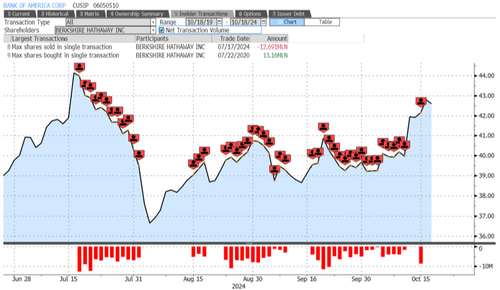Quebecor headquarters in Montreal on May 11, 2023. Quebecor, led by chief executive officer Pierre Karl Péladeau, first approached Corus in January with a takeover offer. Christinne Muschi/The Canadian Press Quebecor Inc.
QBR-B-T is pushing lenders to take a haircut on loans to Corus Entertainment Inc. CJR-B-T in its attempt to acquire the media company’s national stable of television and radio stations. Montreal-based Quebecor , a telecom and media powerhouse in its home province, is asking banks and credit funds to write off 60 per cent or more of Corus’s $1.
05-billion in debt as part of a pretakeover restructuring at the Toronto-based company, according to analysts, investment bankers and media industry executives. Corus’ lenders, led by Royal Bank of Canada and Toronto-Dominion Bank , are giving the company more time to solve its financial woes rather than swallow the loan losses that would come with accepting Quebecor’s bid. In early September, RBC and TD extended the deadline for reaching an agreement on debt relief to Oct.
15. Quebecor, led by chief executive officer Pierre Karl Péladeau, first approached Corus in January with a takeover offer. In recent months, Quebecor continued to show interest in acquiring the parent of the Global Television Network, if lenders agree to write off much of the debt, according to two sources familiar with the transaction.
The Globe and Mail agreed not to name the sources because they are not permitted to speak for the companies. Quebecor is urging Corus and its lenders to embrace a court-supervised creditor restructuring, the sources say. Analysts and credit rating agencies say Corus has other options, including selling assets such as Global TV or a debt-for-equity swap with note holders.
Corus has yet to engage in serious takeover talks with Quebecor. Similar showdowns between lenders and opportunistic buyers of businesses with busted balance sheets are playing out across the country. Banks are grappling with an increase in bad loans to many sectors, including media and real estate.
Five of the big six Canadian banks increased provisions for credit losses in the most recent quarter, compared with a year ago. Over the 12 months ended July 31 – the most recent data – 6,302 businesses filed for insolvency, up 55 per cent from the same period a year ago, according to the federal office of the Superintendent of Bankruptcy. For companies with strong balance sheets, such as Quebecor, Corus’ debt problems represent an opportunity to try to snap up assets such as Corus’s Global Television Network, 32 specialty TV channels and 39 radio stations.
“If Quebecor were to make a bid, we would expect it to occur within a debt-restructuring initiative,” said Maher Yaghi, analyst at Scotiabank, in a recent report. “We don’t think Quebecor would pay north of $400-million in enterprise value for Corus.” The current enterprise value of Corus – the company’s equity plus its debt at stated values – is $1.
08-billion. Corus shares closed Friday at 16 cents on the Toronto Stock Exchange, which valued the company’s equity at $32-million. Corus owes $312-million to banks, a loan secured against its assets.
The company has an additional $750-million of debt in the form of unsecured notes, with $500-million due in 2028 and $250-million maturing in 2030. The Corus notes traded last week in credit markets at roughly 40 cents on the dollar, reflecting investor expectations of a restructuring. “We believe that for a transaction to make financial sense for Quebecor, the debt would need to be restructured, in that, the senior notes would have to be secured well below par,” said Aravinda Galappatthige, analyst at Canaccord Genuity Capital Markets, in a report.
Corus and Quebecor declined to comment. Corus’s TV and radio businesses are profitable, and the company generated $18-million in free cash flow in the three months ended May 31. However, revenues have been falling for several years, as viewers embraced streaming and advertising moved from conventional broadcasters to tech companies such as Google parent Alphabet Inc.
and Meta Platforms Inc. Quebecor is likely the only bidder for Corus, according to analysts: “We don’t see many potential acquirers for Corus at this stage,” Mr. Yaghi said.
Owners of rival television networks, such as Bell parent BCE Inc. and Rogers Communications Inc., are focused on building cell phone and internet networks and paying down debt.
According to one of the sources, both Bell and Rogers signed non-disclosure agreements with Corus earlier this year in order to review the company’s operations, then walked away. Last year, Quebecor built a national cell phone platform by acquiring Freedom Mobile from Shaw Communications Inc. for $2.
85-billion. If he can buy Corus for a bargain-basement price, part of Mr. Péladeau’s plan is to market Freedom on national TV and radio networks, a cross-selling strategy that has help Quebecor build dominant market share for the company’s platforms in Quebec.
Even if lenders agree to take a loss on loans and sell Corus to Quebecor, analysts question the wisdom of acquiring the broadcaster. “We believe TV revenues will continue to decline and viewership will continue to shift online, depriving conventional and specialty TV channels of important viewership and hence advertising revenues,” Mr. Yaghi said.
“While in the short-to-medium term, acquiring Corus could make strategic sense (if the price paid is a fraction of the debt level), in the longer term we believe Quebecor should focus its capital on the telecom assets.” Corus took on debt eight years ago when it acquired Global TV and other specialty channels for $2.65-billion from parent Shaw Communications Inc.
This summer, the company lost a significant portion of its specialty TV business when Warner Bros. Discovery Inc. decided not to renew its Canadian rights to five popular specialty channels, including HGTV and Food Network, when its current deal expires at the end of this year.
Rogers won the rights to that content starting in 2025..
Business
Quebecor pushes for debt discount as it seeks to acquire Corus Entertainment
The Montreal-based company is asking banks and credit funds to write off 60 per cent or more of Corus’s $1.05-billion in debt as part of a pretakeover restructuring, analysts say














